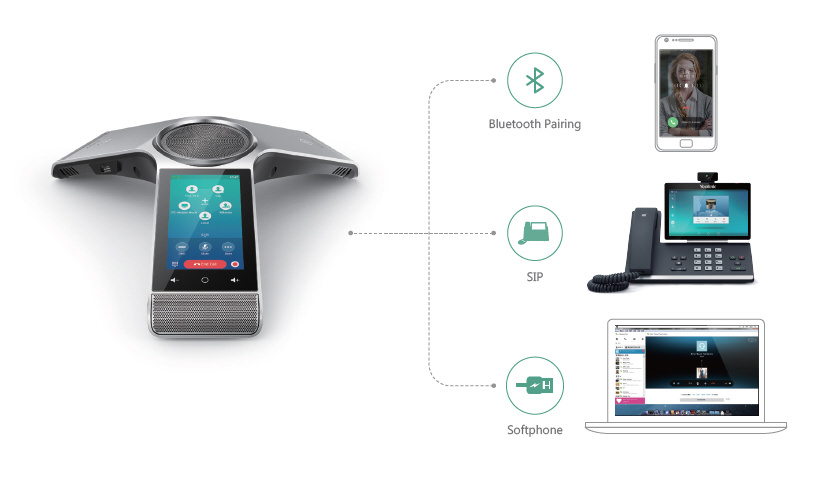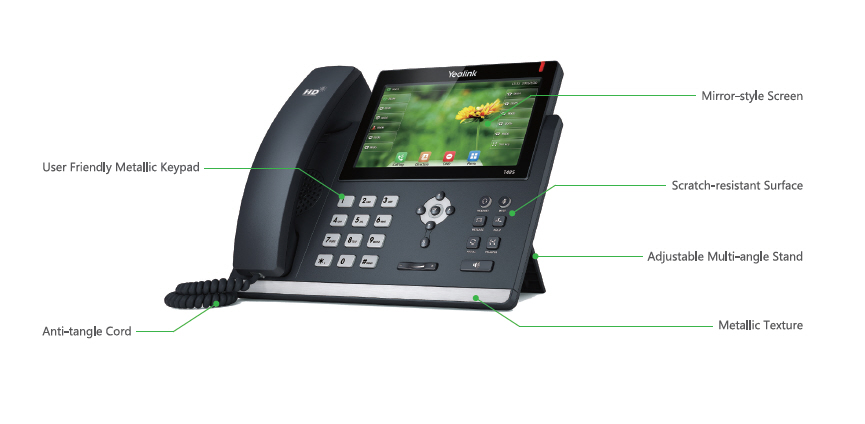How VoIP Phone Systems Work: A Simple Breakdown
Introduction: The Evolution of Communication
In the realm of modern communication, the VoIP (Voice over Internet Protocol) phone system has emerged as a game-changer. Gone are the days of traditional landlines that tether us to a physical location. Today, businesses and individuals alike are embracing the flexibility and efficiency that VoIP phone systems offer. But how do these systems work? In this article, we will delve deep into the mechanics of VoIP phone systems, unraveling their intricacies while highlighting their benefits and applications.
What is a VoIP Phone System?
A VoIP Phone System allows users to make voice calls using an internet connection instead of traditional analog phone lines. By converting audio signals into digital data packets, VoIP systems enable communication over the internet. This not only reduces costs but also enhances functionality.
How Does a VoIP Phone System Operate?
At its core, a VoIP phone system operates by breaking down voice signals into data packets that can be transmitted over the internet. These packets are then reassembled at their destination, allowing for seamless communication.
Signal Conversion: When you speak into a VoIP phone, your voice is converted into digital data. Packetization: This data is broken down into small packets for efficient transmission. Transmission: The packets travel through the internet to reach their intended recipient. Reassembly: Once received, the data packets are reassembled and converted back into audible sound.
Key Components of a VoIP Phone System
Understanding how these components interact can help demystify how VoIP phone systems work:
VoIP Phones: These can be hardware-based (physical phones) or software-based (apps on smartphones or computers). Internet Connection: A stable internet connection is crucial for effective communication. VoIP Service Provider: Companies that offer VoIP services manage call routing and other functions.
Benefits of Using VoIP Phone Systems
Cost-Efficiency
One of the primary advantages of switching to a VoIP phone system is cost savings. Traditional landline services often come with hefty fees for long-distance calls and extra features. In contrast, most VoIP providers offer competitive pricing plans that include unlimited calling options.
Scalability
As businesses grow, so do their communication needs. With a traditional phone system, scaling up often requires extensive infrastructure changes. However, with a VoIP phone system, adding new lines or https://soundcurve.com/ features can usually be accomplished with just a few clicks.
Advanced Features
VoIP technology comes equipped with numerous advanced features that enhance productivity:
Call forwarding Video conferencing Voice mail-to-email transcription Auto-attendant services
Types of VoIP Phone Systems
Hosted vs On-Premises Solutions
There are two main types of VoIP solutions available:
Hosted VoIP: This option involves outsourcing call management to a service provider that hosts the necessary infrastructure in their data centers.
On-Premises VoIP: In this scenario, businesses maintain their own servers and hardware onsite.
Both have their pros and cons depending on factors like budget and desired control level.

Residential vs Business Solutions
While residential users may prioritize basic calling features at lower costs, businesses often require advanced capabilities tailored to professional environments.
How To Set Up A VoIP Phone System
Setting up a VoIP Phone System might seem daunting at first glance; however, it’s relatively straightforward when broken down into manageable steps:
Evaluate Your Internet Connection Ensure you have sufficient bandwidth to support multiple calls simultaneously. Choose Your Equipment Decide between using dedicated hardware or softphones for your setup. Select a Reliable Provider Research different service providers based on pricing and feature offerings. Configure Your Network Adjust router settings if necessary to optimize call quality. Test Your Setup Make test calls to ensure everything works smoothly before going live.
Common Misconceptions About VoIP Phone Systems
Misconception 1: Poor Call Quality
Many people believe that using an internet-based system will result in inferior call quality compared to traditional phones; however, advancements in technology have greatly improved this aspect.
Misconception 2: Limited Features
Another common misconception is that cloud-based solutions lack features; quite on the contrary! Most modern VoIP Phone Systems come packed with versatile functionalities designed for various business needs.
VoIP Security Concerns
With increased reliance on technology comes heightened concern about security vulnerabilities associated with VoIP Phone Systems:
Encryption Ensuring all communications are encrypted helps prevent eavesdropping. Regular Updates Keeping software updated minimizes risk from security loopholes. Strong Passwords Implementing strong authentication measures fortifies access points against unauthorized entry.
FAQs About How VoIP Phone Systems Work
FAQ 1: What do I need to use a VoIP phone system?
To utilize a VoIP Phone System effectively, you'll need an adequate internet connection, compatible hardware or software phones, and an account with a reliable service provider.

FAQ 2: Can I keep my existing number?
Yes! Most providers allow you to port your existing number without any hassle during setup.
FAQ 3: Is it possible to use a mobile device?
Absolutely! Many service providers offer mobile applications enabling you to make calls directly from your smartphone via Wi-Fi or cellular data.
FAQ 4: Will power outages affect my service?
Yes! If there’s no backup power supply for your network equipment during an outage, your VoIP Phone* will not function until power is restored.
FAQ 5: How does international calling work?
Most VoIP Providers offer affordable international calling rates compared to traditional carriers; some even include free calls between countries depending on selected plans!
FAQ 6: Are there any hidden fees?
It's essential always to read through terms carefully; reputable providers should disclose all fees upfront without surprises later!

Conclusion
In conclusion, understanding how VoIP Phone Systems Work enables individuals and businesses alike not only to make informed decisions but also take full advantage of what modern communication technologies have to offer today! Whether you're looking for cost savings or advanced features suited specifically for professional use cases—adopting this innovative solution could revolutionize your approach towards connectivity forevermore!
Embrace change wholeheartedly because when it comes down it—every voice matters!